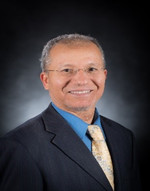


Title: Lightweight Security Schemes for Health Systems’ IoT Devices
Abstract: With the proliferation of Cybersecurity in the last decade, it has become essential in all aspects of our lives. On the other hand, Internet of Things (IoT) is transforming our society and daily lives by connecting everything around us. This is expected to fundamentally transform industry, business, transportation and healthcare. However, this ubiquitous connection brings with it many challenges that range from security, smart cities, big data, to device-level protocols. It is estimated that there will be hundreds of billions of IoT devices that need to be connected in the next few years. In addition, more than half of the world’s population live in cities, many with multiple devices that need to be connected to the Internet. This is expected to create a complex infrastructure. These smart services rely on computation and communication resources. Furthermore, being able to provide adequate services using these complex systems present enormous challenges.
In this talk, we review the current efforts by experts around the world to mitigate some of these challenges. Then, we showcase our research activities in providing lightweight security schemes that can fit the IoT device requirements. Then, we present our contributions to these efforts and advocate possible solutions using learning and other tools. We provide ways on how to manage the available resources intelligently and efficiently in order to offer better living conditions and provide better services. Finally, we discuss some of our research results to support a variety of applications including healthcare, security, and intelligent transportation systems.
Biography: (S’85–M’89–SM’99–F’09) received the B.S. (with distinction) and M.S. degrees in electrical engineering, the M.S. and Ph.D. degrees in computer engineering from Syracuse University, Syracuse, NY, USA, in 1984, 1986, 1987, and 1990, respectively. He is currently a Professor at the Computer Science and Engineering Department in Qatar University, Qatar. Previously, he served in different academic and administrative positions at the University of Idaho, Western Michigan University, University of West Florida, University of Missouri-Kansas City, University of Colorado-Boulder, and Syracuse University. His research interests include wireless communications and mobile computing, computer networks, mobile cloud computing, security, and smart grid. He is currently the Editor-in-Chief of the IEEE Network Magazine, serves on the editorial boards of several international technical journals and the Founder and Editor-in-Chief of Wireless Communications and Mobile Computing journal (Wiley). He is the author of nine books and more than 500 publications in refereed journals and conferences. He guest edited a number of special issues in IEEE journals and magazines. He also served as a member, Chair, and General Chair of a number of international conferences. Throughout his career, he received three teaching awards and four research awards. He also received the 2017 IEEE Communications Society WTC Recognition Award as well as the 2018 AdHoc Technical Committee Recognition Award for his contribution to outstanding research in wireless communications and Ad-Hoc Sensor networks. He was the Chair of the IEEE Communications Society Wireless Technical Committee and the Chair of the TAOS Technical Committee. He served as the IEEE Computer Society Distinguished Speaker and is currently the IEEE ComSoc Distinguished Lecturer. He is a Fellow of IEEE and a Senior Member of ACM.